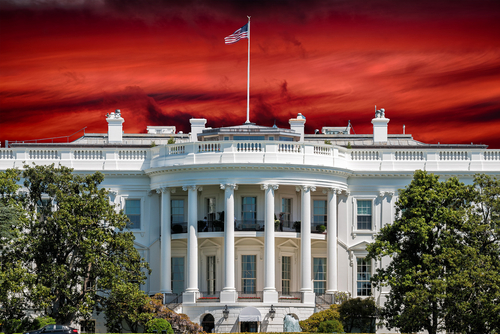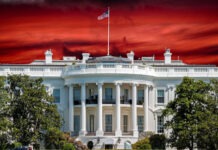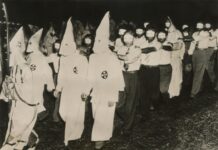
In an alarming development, there are growing concerns among a segment of national security professionals and Pentagon insiders regarding the potential for former President Donald Trump to utilize the U.S. military to assert his political agenda if he were to be re-elected. These fears have given rise to speculative reports suggesting that there may be clandestine efforts underway to prevent Trump from exercising the full extent of presidential powers.
According to recent discussions, there is a belief that Trump could potentially disregard the traditional checks and balances that have been the cornerstone of American democracy for over two centuries. This apprehension stems from Trump’s previous term in office, where a cadre of independent appointees reportedly curbed his more controversial impulses. However, there is speculation that, if re-elected, Trump might populate his administration with loyalists less inclined to challenge his directives.
HOLY SHIT…
NBC News just admitted the Deep State exists.
A “network of public interest groups and lawmakers” are “quietly devising plans” to prevent Trump from using the military to carry out retribution.
They know Trump is going to win, and know what he’s about to do. https://t.co/ZqBiQWSVTw
— Clandestine (@WarClandestine) January 14, 2024
The notion of civilian control over the military is a fundamental principle of American governance. It ensures that the military remains subject to the authority of democratically elected leaders. Yet, it appears that some groups are preparing to take preemptive action to maintain this control, fearing that Trump could commandeer military support for personal political objectives.
A loose network of public interest groups and lawmakers is said to be quietly formulating strategies to counter any perceived attempts by Trump to expand presidential power unduly. This includes the possibility of legal challenges and proactive communication with potential Trump appointees to underscore the constitutional repercussions of undermining democratic norms.
NBC News Admits 'Deep State' Exists… To Save Us From Trump's Return https://t.co/snLIN0A4Zm
— zerohedge (@zerohedge) January 14, 2024
Critics of these preemptive measures argue that such actions could be seen as unconstitutional and might even set the stage for a “military coup,” effectively subverting the will of the American electorate. The core of their argument is that any orchestrated effort to limit the authority of a legally elected president would constitute a direct threat to the democratic process.
Amidst these swirling allegations, key organizations known for their opposition to Trump’s policies are gearing up for potential legal battles. They aim to forge alliances to safeguard against any abuses of power from the outset of a new administration. These groups are closely monitoring Trump’s policy statements and the rhetoric of his allies to anticipate the direction of a potential second term.
The stakes are high as the nation approaches the next election cycle. There is a palpable sense of urgency among certain factions to ensure that the mechanisms of democracy remain intact and that no individual, not even a president, can wield unchecked power. As these groups prepare for what they perceive as a critical juncture in American history, the debate over the balance of power and the sanctity of democratic institutions continues to intensify.
In conclusion, while the veracity of these reports remains a matter of debate, the implications are significant. The prospect of a deep-seated conflict between the executive branch and established democratic safeguards raises profound questions about the future of American governance and the resilience of its constitutional framework.












